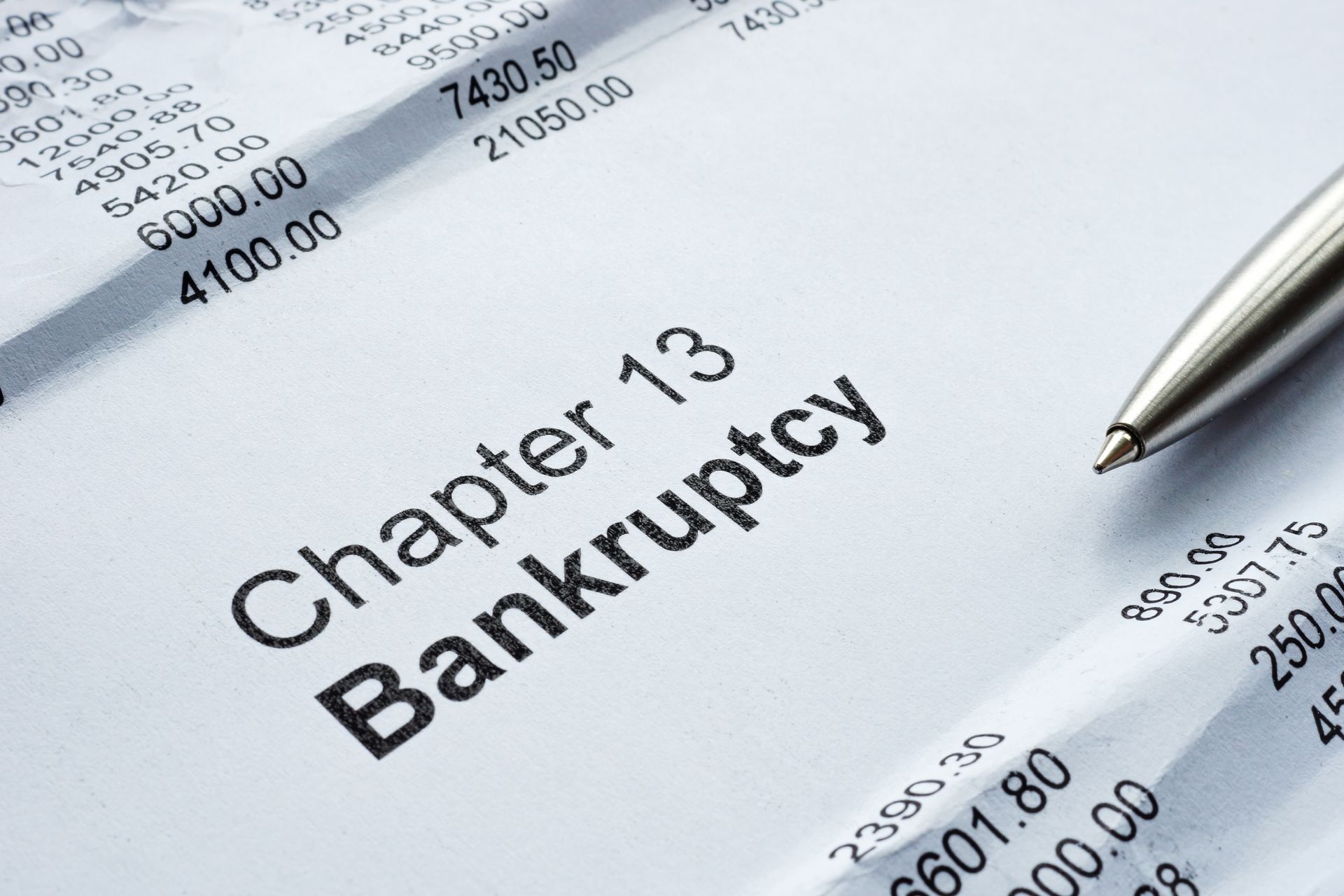What Are the Requirements for Filing Chapter 13 Bankruptcy?
What Are the Requirements for Filing Chapter 13 Bankruptcy?

Filing for Chapter 13 bankruptcy can be a lifeline for individuals struggling with overwhelming debt while still seeking to retain their assets. It’s a legal process that allows you to reorganize and repay your debts over a specified period, typically 3 to 5 years. However, understanding the requirements for filing Chapter 13 bankruptcy is crucial to determine if it’s the right solution for your financial situation.
In this blog, we’ll explore the eligibility criteria, documentation needed, and the steps involved in filing for Chapter 13 bankruptcy.
What is Chapter 13 Bankruptcy?
Chapter 13 bankruptcy, often referred to as a "wage earner’s plan," is designed for individuals with a regular income who can propose a repayment plan to settle all or part of their debts. Unlike Chapter 7 bankruptcy, which involves liquidating assets, Chapter 13 allows debtors to retain their property while catching up on missed payments over time.
Key Requirements for Filing Chapter 13 Bankruptcy
To qualify for Chapter 13 bankruptcy, you must meet specific legal and financial criteria:
1. Regular Income
The cornerstone of Chapter 13 bankruptcy is having a reliable source of income. This can include wages, salary, self-employment earnings, or even Social Security benefits. Your income must be sufficient to cover both your basic living expenses and the proposed repayment plan.
2. Debt Limits
Your total secured and unsecured debts must fall within prescribed limits:
- Secured Debt Limit: $2,750,000 (e.g., mortgages, car loans)
- Unsecured Debt Limit: $1,250,000 (e.g., credit cards, medical bills)
These limits are periodically adjusted to account for inflation.
3. Proof of Filing Tax Returns
You must provide proof of having filed federal and state income tax returns for the four years preceding your bankruptcy filing. This ensures that you’re in compliance with tax obligations, a requirement for proposing a repayment plan.
4. Completion of Credit Counseling
Before filing, you’re required to complete a credit counseling course from an approved provider. This session, usually lasting about 90 minutes, helps assess whether bankruptcy is the right option for you and explores alternatives.
5. Ability to Meet the Repayment Plan
The court will evaluate whether your proposed repayment plan is feasible. This includes demonstrating that you can pay priority debts (like taxes and child support) and secured debts (like mortgage arrears) during the plan period while covering regular living expenses.
6. Residency Requirement
You must file in the federal district where you reside. For example, if you live in New York, you’ll file with the relevant bankruptcy court in your district.
Documentation Needed to File Chapter 13 Bankruptcy
When filing, you’ll need to submit specific documents to the bankruptcy court:
- Bankruptcy Petition: The official form to start the bankruptcy process.
- Schedules of Assets and Liabilities: A detailed list of your assets, debts, and creditors.
- Statement of Financial Affairs: Information about your income, expenses, and financial transactions.
- Proof of Income: Pay stubs, Social Security statements, or self-employment records.
- Tax Returns: Copies of your federal tax returns for the past four years.
- Repayment Plan Proposal: A detailed outline of how you plan to repay creditors over the specified period.
Steps to File for Chapter 13 Bankruptcy
1. Consult with a Bankruptcy Attorney
Filing for Chapter 13 is a complex legal process, so hiring an experienced attorney is crucial. At J. Singer Law Group, we’ll guide you through every step, ensuring compliance with the law and maximizing the benefits of bankruptcy.
2. Complete Credit Counseling
You must complete the required credit counseling course within 180 days of filing. Upon completion, you’ll receive a certificate to include in your bankruptcy petition.
3. File the Bankruptcy Petition
Your attorney will help you file the necessary forms, including the repayment plan, with the bankruptcy court. Once filed, an automatic stay goes into effect, preventing creditors from pursuing collection actions.
4. Attend the 341 Meeting of Creditors
This meeting allows creditors to ask questions about your financial situation and proposed repayment plan. While it may sound intimidating, your attorney will prepare you for this meeting.
5. Follow Your Repayment Plan
Once approved, you’ll make regular payments to a bankruptcy trustee, who will distribute funds to creditors according to the plan.
6. Receive a Discharge
Upon successful completion of your repayment plan, any remaining dischargeable debts will be wiped clean, giving you a fresh financial start.
Benefits of Filing Chapter 13 Bankruptcy
- Prevent Foreclosure: Catch up on missed mortgage payments and keep your home.
- Retain Assets: Unlike Chapter 7, you won’t have to sell property to satisfy debts.
- Consolidate Debts: Streamline payments into one manageable monthly amount.
- Stop Creditor Harassment: The automatic stay prevents creditors from contacting you.
Is Chapter 13 Bankruptcy Right for You?
Chapter 13 bankruptcy isn’t for everyone. It’s best suited for individuals who have steady income, want to protect significant assets, and can adhere to a structured repayment plan. However, the eligibility requirements and legal intricacies make it essential to consult an experienced bankruptcy attorney to determine if this option aligns with your financial goals.
Conclusion
Filing for Chapter 13 bankruptcy is a powerful tool for regaining control over your finances. By meeting the requirements, preparing the necessary documentation, and working with a skilled attorney, you can create a path toward financial stability.
At J. Singer Law Group, we specialize in guiding clients through the complexities of bankruptcy law. Whether you’re unsure about your eligibility or need assistance filing, our team is here to help.
Optimize your financial future with the help of J. Singer Law Group. Contact us today for a consultation!
FAQs
1. Can I file Chapter 13 bankruptcy if I’m unemployed?
No, you need a regular income to qualify, as your repayment plan depends on your ability to make monthly payments.
2. How long does a Chapter 13 bankruptcy case last?
Typically, repayment plans last 3 to 5 years.
3. What happens if I miss a payment under my repayment plan?
Missing payments can jeopardize your case. Consult your attorney immediately to explore options like modifying your plan.
4. Will Chapter 13 bankruptcy affect my credit?
Yes, it will appear on your credit report for up to 7 years, but it also provides a chance to rebuild your financial health.
5. Can I include all debts in Chapter 13 bankruptcy?
Most debts can be included, but some, like student loans and recent tax debts, are generally non-dischargeable.











